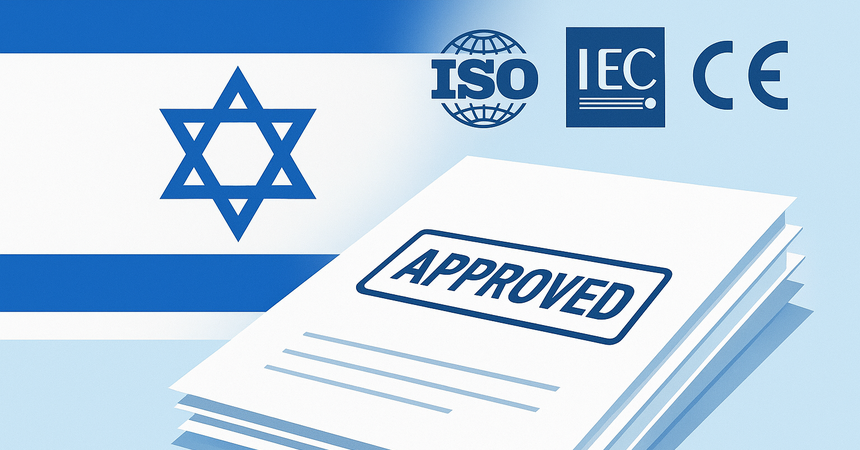Israel actively participates in international trade while maintaining its own unique certification requirements. For foreign companies, it is crucial to understand how local standards align with international regulations, when an international certificate can be recognized in Israel without additional testing, and when a full certification process is required.
Israel’s International Integration
Israel is a member of key international organizations:- ISO (International Organization for Standardization) — international standards for quality and safety;
- IEC (International Electrotechnical Commission) — standards for electrical and electronic products;
- Codex Alimentarius — international food safety standards.
Main Points of Convergence
- Electrical and Electronic Equipment
- Quality Management Systems
- Food and Beverages
- Medical Devices and Pharmaceuticals
Main Differences
- Labeling: Hebrew information is mandatory. International certificates do not exempt companies from this rule.
- Mandatory Local Certification: Even if products are ISO or CE certified, approval by the Standards Institution of Israel (SII) is often required.
- Import Inspections: Foreign certificates may not always be accepted at customs, which can delay imports.
- Industry Specifics: In medicine and pharmaceuticals, Israel requires its own registrations; in construction — unique national standards.
- Verify whether your certificates are recognized in Israel.
- Prepare documentation in both English and Hebrew.
- Consult experts familiar with local procedures.
- Plan certification in parallel with your market entry strategy.
Conclusion
Israeli standards are largely based on international norms but maintain unique national characteristics. Understanding convergence points and differences helps companies avoid unnecessary costs and accelerate market entry.WorldWideBridge supports clients at every stage: analyzing international certificates, identifying which are recognized in Israel and which require additional approval, and managing the entire process from start to finish.
